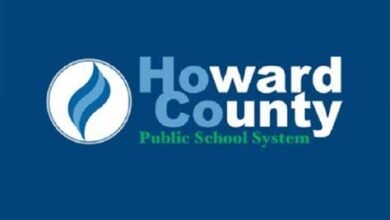Fake Letter Leaves Nigerian International Student Without Status, Asked to Leave Canada

Source: https://www.cbc.ca/
In 2019, Lola Akinlade, an international student from Nigeria, graduated with a diploma in social services from Nova Scotia Community College. Despite her outward happiness, she was deeply troubled after receiving a letter from Immigration, Refugees and Citizenship Canada (IRCC). The letter accused her of using a fake document to enter Canada in 2016, a charge she was unaware of until then. This revelation has left Akinlade and her family in Canada without immigration status and facing uncertainty about their future if they return to Nigeria. Akinlade described the experience as the start of her trauma.
Statistics from Immigration, Refugees and Citizenship Canada (IRCC) and field experiences suggest that many international students in Canada might be facing issues similar to Lola Akinlade’s. Since December 2023, IRCC has identified over 9,000 fake acceptance letters. Akinlade is asking IRCC to review her case, claiming she was deceived by a “rogue agent” who provided her with a fraudulent letter of acceptance. She is seeking a resolution and has requested that her file be reexamined.
In 2015, Lola Akinlade, then a medical sales representative in Lagos with a degree in business administration, began considering studying in Canada. Lola Akinlade provided an agent with her passport, university transcripts, and payment, and received a study permit, plane tickets, and an acceptance letter to the University of Regina. She arrived in Canada in December 2016, expecting to start classes in January 2017. However, while in Winnipeg, she was informed by the agent that there were no spaces available at the university and that she would need to join a waitlist.
After learning there were no available spots at the University of Regina, Lola Akinlade independently found a new program at Nova Scotia Community College, where she started in September 2017. She chose social services as it was more relevant to her previous medical work. It was only two years later, upon receiving a letter from IRCC about a fake acceptance letter, that Akinlade contacted the University of Regina and discovered the acceptance letter had been fraudulent.
Lola Akinlade had minimal contact with Babatunde Isiaq Adegoke, the Nigerian agent who assisted her Canadian study application. In communication with CBC, Adegoke admitted providing Akinlade with the University of Regina acceptance letter, which he received from Success Academy Education Consult. Adegoke claimed he was unaware the letter was fake and denied informing Akinlade of a waitlist. The consulting company is now unreachable.
Babatunde Isiaq Adegoke, who helped Lola Akinlade with her study permit, stated that he no longer offers such services and has had no contact with Success Academy Education Consult since 2018. He did not provide further details via video call. CBC’s attempts to locate the business or verify the acceptance letter through similar-named businesses were unsuccessful.
Lola Akinlade and her family, including her husband Samson and their two children, are facing deportation after losing their temporary resident status in Canada. The family, who invested heavily in Akinlade’s education and sold their Nigerian home to fund it, is now struggling financially and unable to work or attend school. Their youngest son, born in Canada, lacks medical coverage due to their status. Akinlade’s lawyer is filing a humanitarian application to stay, citing issues with “rogue agents” who mislead immigrants. This problem is recognized by Canadian educational institutions, which occasionally encounter students misled by such agents.
Graham Barber from Universities Canada noted that a common scam involves agents swapping students’ university acceptance letters for those from private career colleges to improve the chances of obtaining a study permit. Last year, the federal government implemented a verification process to check the authenticity of acceptance letters, which Barber said is effective. However, there is concern among universities about their reputations being misused without their consent.
Between a specific day and July 1, IRCC identified 9,175 fraudulent letters out of 361,718 checked. These letters were not issued by Canadian schools and may indicate fraud, but each needs individual verification. IRCC focuses on identifying fraudsters rather than penalizing victims.
Amanat Sandhu, an immigration lawyer, is unclear why IRCC believes Akinlade knew her letter was fake, given the applicant’s responsibility for application details. Despite using an agent, Akinlade claims she was unaware of the fraud and seeks a reexamination of her case. She is filing a humanitarian application, which does not guarantee her stay or provide an estimated processing time.
The issuance of fake admission letters by agents to international students can have severe and far-reaching effects on both the individuals involved and the broader educational and immigration systems. Here are some key consequences:
Effects on International Students:
- Legal and Immigration Issues:
- Loss of Status: Students may face deportation or be required to leave the host country if their immigration status is found to be based on fraudulent documents.
- Difficulty in Regularizing Status: They may struggle to rectify their status, affecting their ability to remain in or return to the host country legally.
- Future Visa Challenges: Their record of fraud may hinder their ability to obtain visas or other immigration benefits in the future.
- Financial Loss:
- Tuition Fees and Living Expenses: Students often invest significant amounts in tuition, living costs, and application fees, which may be lost if their admission is invalidated.
- Additional Costs: They may incur further costs in attempting to correct their situation, including legal fees and expenses for reapplying to schools.
- Emotional and Psychological Impact:
- Stress and Anxiety: The experience can cause significant emotional distress, including anxiety about legal status, financial instability, and uncertainty about their future.
- Trauma: The realization of being deceived can lead to feelings of betrayal and trauma, impacting mental well-being.
- Educational Disruption:
- Interrupted Studies: Students may face delays in their educational journey, including interruptions or the need to restart their studies in a different institution.
- Academic Setbacks: The time spent resolving their immigration issues can result in academic setbacks and delays in their career progression.
Effects on Educational Institutions:
- Reputational Damage:
- Brand Integrity: Institutions may suffer damage to their reputation if their names are used fraudulently, affecting trust and credibility with prospective students and stakeholders.
- Loss of Applicant Trust: Prospective students may become skeptical of the legitimacy of institutions if they are associated with fraudulent activities.
- Administrative Burden:
- Increased Workload: Schools may face additional administrative work to address and rectify issues related to fraudulent admissions.
- Resource Allocation: Resources may be diverted to handle the fallout from fraudulent admissions, including investigations and legal challenges.
Effects on the Immigration System:
- Increased Scrutiny:
- Stricter Policies: Immigration authorities may implement more stringent policies and procedures to prevent fraud, which can affect genuine applicants.
- Additional Verification Processes: Increased verification requirements can lead to longer processing times and additional administrative burdens.
- Security and Fraud Detection Challenges:
- Resource Strain: Immigration and border control agencies may experience increased strain on their resources and systems due to the need to detect and address fraudulent documents.
- Loss of Trust: Fraudulent activities can undermine trust in the immigration system and its ability to ensure the legitimacy of applicants.
- Legal and Compliance Issues:
- Regulatory Challenges: The presence of fraudulent documents may lead to legal and regulatory challenges for both the institutions and immigration authorities involved.
Addressing these issues requires coordinated efforts between educational institutions, immigration authorities, and legal entities to ensure that the integrity of the admission process is maintained and that students are protected from fraudulent practices.
Image Source: https://www.cbc.ca/





